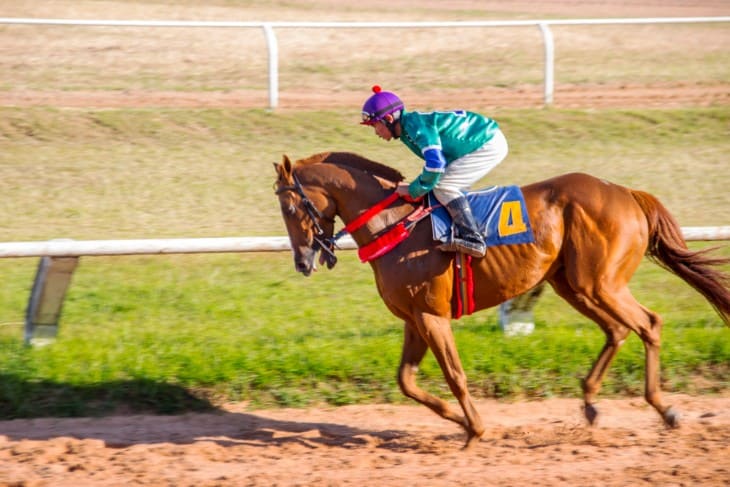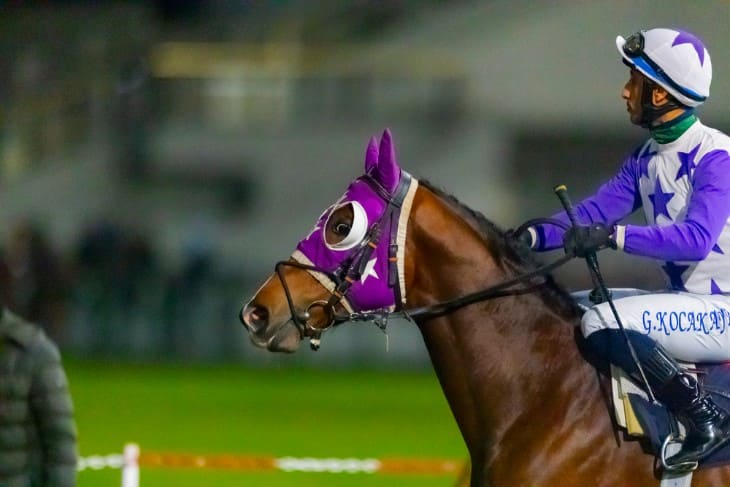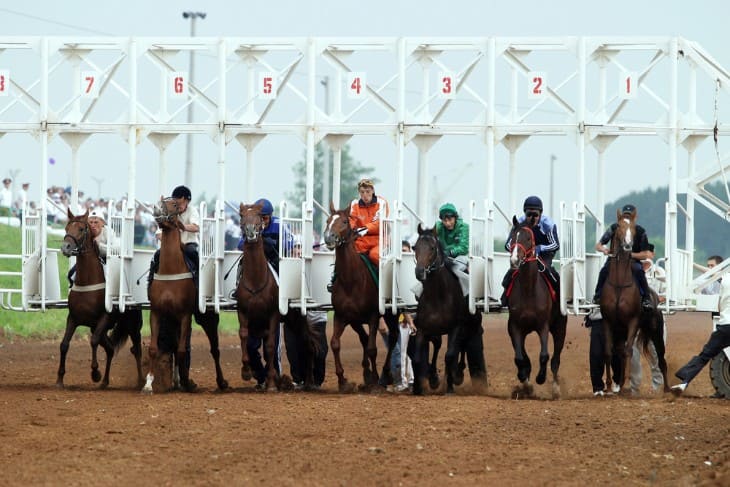- George Stevens: An Unbeatable Legacy
- Brian Fletcher: The Perfect Pilot for Red Rum
- Bob Champion: A Story of Perseverance and Triumph
- Tommy Carberry: Mastering the Aintree Challenge
- Richard Dunwoody: A true pacesetter
- Tony McCoy: A Modern Legend
- Ruby Walsh: The Definition of Dominance
- Leighton Aspell: Emperors Have Been Crowned Twice
- Peter Scudamore: The Quest Unfulfilled at Aintree
- Tim Forster: The Art of Winning by The Gentleman Trainer
- Graham Lee: From Flat Racing to National Glory
- Final Verdict
George Stevens: An Unbeatable Legacy
George Stevens, a Grand National jockey in the 19th century, is one of the most successful jockeys ever. This has been a benchmark that many still need to equal since then. He is the only jockey to win the Grand National five times. On its own, this speaks volumes about his unique ability, determination and extensive knowledge of Aintree.
His first victory came aboard Freetrader in 1856. In 1863 and 1864, he rode back-to-back wins on Emblem and Emblematic before triumphing consecutively on The Colonel in two subsequent years, 1869 and 1870.
Key Jockey Achievements:
- First victory in the Grand National with Freetrader in 1856.
- Back-to-back wins on Emblem and Emblematic in 1863 and 1864.
- Consecutive victories riding The Colonel in 1869 and 1870 cemented his legendary status.
Stevens has a legacy that is unmatched in National Hunt racing. It was over a century since anyone touched his record, making it an insurmountable barrier for others. He was always untouchable during this era because he had strategic race planning and knew how to execute such plans.
Yet, Stevens will forever be remembered as an icon of sportsmanship, bravery and perseverance amongst other sports jockeys at that time all fundamental aspects Grand National stands for even today.
Brian Fletcher: The Perfect Pilot for Red Rum
When people think of Brian Fletcher, they think of one horse: Red Rum. They are often referred to as one entity since their incredible partnership. Together, they managed three victories at the Grand National throughout the seventies, once ridden by Fletcher himself and twice by Tommy Stack, who took over for their final win. Their first victory in 1973 is the most famous. They returned from a 30-length deficit to beat Crisp, which many see as the most significant Grand National ever.
Although Red Rum stole much of the spotlight during those years, there is no doubt that Fletcher played a pivotal role in the company's success. Brian had an incredible understanding of that horse's strengths and weaknesses. When you add his strategic thinking and race day decisions into the mix, he was unbeatable on Red Rum.
The 1973 win showcased Fletcher's incredible skill, patience, and fighting spirit. He managed to keep Red Rum's energy level low throughout the race so they could move at just the right moment to secure a victory that would never be forgotten. Brain Fletcher has left an everlasting impact on the Grand National. He will always be remembered for contributing to one of the most legendary horses ever to compete in this iconic race.
[promotion:240]
Bob Champion: A Story of Perseverance and Triumph
Bob Champion's victory in the 1981 Grand National aboard Aldaniti is one of the most heartwarming and inspirational stories in horse racing. The jockey's battle with cancer, followed by his triumphant return to racing, made for a tale of resilience, hope, and determination that touched millions.
In the months leading up to the Grand National, Champion underwent extensive treatment for testicular cancer, with doctors unsure whether or not he would survive. Yet his unshakeable spirit and connection with Aldaniti, who had returned from severe leg injuries, created a narrative that resonated beyond the sport.
Inspirational Milestones:
- I was surviving a diagnosis of testicular cancer to take part in the Grand National.
- They are forging an incredible bond with Aldaniti following both their health scares.
Their victory was met with sporting admiration and applause for triumph over adversity. Champion's story left an indelible mark on many people, illustrating how strong we can be when faced with insurmountable challenges. The race showcased how skilled Bob was as a jockey and how well he understood his horse.
Together, they tackled the demanding Aintree course fearlessly yet gracefully until they crossed the finish line to roars of amazement and respect. As heartwarming as this incredible win was, Bob's legacy is defined by more than what happened on April 4th, 1981; it can also be seen in his efforts after retirement to raise awareness about cancer research and funding; it is these contributions that set him apart as a true champion on and off the track.
Tommy Carberry: Mastering the Aintree Challenge
The name Tommy Carberry has become synonymous with Grand National's success in both riding and training. Ultimately, it was piloting L'Escargot to beat Red Rum's bid at a third consecutive win in 1975 that made him a household name. Carberry's understanding of the Aintree track and his ability to build relationships with his horses shone through in this particular race.
L'Escargot was already a proven jumper, having claimed victory in the Cheltenham Gold Cup twice, once in 1970 and again in '71, when ridden by Tommy's son Paul. However, it wasn't until Tommy climbed into the saddle for the Grand National that he achieved what many thought might be impossible – further emphasising Carberry's talent as an accomplished jockey.
Carberry played the long game here, knowing exactly when to let L'Escargot off the leash so that they could conserve enough energy for a strong finish. This understanding of strategy and how to ride around Aintree was critical to their success. The partnership was built on both parties' experience, skill, and trust, which has yet to be easily formed and can repeatedly make or break races like this one.
When he hung up his boots, Tommy Carberry continued to show why he is such a revered figure in National Hunt racing as an incredibly successful trainer. He highlighted just how well he knows and understands this sport, which bled into his work at Aintree. His legacy is one of excellence, persistence, and deep love for everything horse racing stands for.
Richard Dunwoody: A true pacesetter
Richard Dunwoody played a prominent role in National Hunt racing through his unique accomplishments, particularly in the highly competitive Grand National. The equestrian showcased resilience, skill, and an unparalleled desire for greatness throughout his career, eventually leading him to the sport's top. In 1986 aboard West Tip and again in 1994 top Miinnehoma, Dunwoody could reach into his bag of tricks and pull out victories.
These wins illustrate his adaptability and expertise in different conditions and racing scenarios. Overall, they prove that he has built effective relationships with all his horses, understanding their strengths individually while maximising their potential on the challenging Aintree course.
Dunwoody's impact on National Hunt racing goes far beyond his success at the Grand National. The athlete raised new standards for professionalism and fitness dedication, inspiring not only future jockeys but also fans. He may have moved on from actively competing, but the legacy he leaves should help elevate the sport that much further.

Tony McCoy: A Modern Legend
Tony McCoy is a name that rings success in National Hunt Racing. If I were to mention some of the significant Jockey Achievements, it would include a win at the 2010 Grand National with Don't Push It, and this explains why he has such huge fans worldwide. This victory especially made him overjoyed for several reasons.
Firstly, it marked another milestone alongside countless others throughout his journey to becoming one of the most legendary jockeys ever. But more importantly, it finally allowed him to achieve what he had been tirelessly working towards for years - winning this race.
As McCoy steered across Aintree's course, people got a first-hand look at just how determined he could be when pushed against a wall. Skills and resilience that no other jockey has in their arsenal quite like him, which is precisely why he secured his first-ever Grand National victory.
Those who follow the sport closely know that McCoy's impact extends beyond just the races. His work ethic and dedication to being the best are rare traits many consider a new standard for jockeys moving forward. So, no matter what, enthusiasts everywhere will always remember Tony McCoy as one of the greats.
Ruby Walsh: The Definition of Dominance
No other jockey has matched Ruby Walsh’s achievements in national hunt racing. Ruby Walsh is a big name in world horse racing today. The equestrian had a string of wins at the Cheltenham Festival through his partnership with legendary trainer Willie Mullins, and he also made an impact at the Grand National.
- A Record Setter: Riding in a staggering 12 Grand Nationals shows how much Walsh lives for this sport, consistently showcasing his mastery of all things Aintree course-related.
- Multiple Victories: He may love winning, but perhaps even more than that, he loves winning numerous times. Papillon in 2000 and Hedgehunter in 2005 are perfect examples (two different horses).
Strategic Brilliance: With so many victories under his belt already, there may be some formula or method behind Walsh's success. Trust me, there is. His tactical acumen gives him an edge against competitors and helps him make life-changing split-second decisions under immense pressure.Ruby Walsh, a winner who wins, is on top of his game. He may be as legendary as the horses he now races for but this hasn’t stopped him from notching up victories like no other. Even his musings and analysis have graced the headlines too. He is just unstoppable.
Leighton Aspell: Emperors Have Been Crowned Twice
Winning the Grand National race twice in succession is a challenging feat. By riding Pineau De Re, Aspell displayed extraordinary skill and excellent timing, winning much respect from his audience. And it was not an accident: he confirmed it by repeating the same success the following year with Many Clouds, which demonstrated that he possessed both adaptability and a deep understanding of racecourse requirements.
Just picture the tension noise from the spectators as Leighton Aspell carefully piloted Pineau De Re over the daunting Aintree fences in 2014. But then he just moved to 2015, and there he was again, this time with Many Clouds, showing off his ability and exposing a deep emotional connection between himself and his horse, accomplishing what many dreams of yet few people achieve.
Those wins were more than just victories; they were evidence of Aspell’s laboriousness, commitment, and literally never-say-die attitude toward defeating all odds. In a national hunt racing world where uncertainty is the only certainty of life, Aspell’s consecutive winning of The Grand Nationals engraves his name in the annals of horse racing history as a true legend of this sport.
Peter Scudamore: The Quest Unfulfilled at Aintree
Peter Scudamore was an illustrious jockey who tasted both success and defeat at the Grand National racecourse. His career spanned many years and saw him participate twelve times at Grand Nationals, including winning other notable races elsewhere while failing to clinch this much-prized event.
- Many Attempts: Scudamore made various bids to win the Grand National and rode well-known horses such as Corbiere and Caribee Island.
- Narrow Misses: In 1985, partnering Corbière, he came closest to victory, finishing second. It was painful not to add the Grand National to his list of accolades.
Scudamore’s pursuit of Grand National triumph reveals the tribulations and vagaries that define this iconic race. Although Aintree tasted no victories from him, his career reminds him of what the Grand National is; a test for skill, bravery and perseverance with no guarantees of success.

Tim Forster: The Art of Winning by The Gentleman Trainer
It was not just as a jockey that Tim Forster made an impression on the Grand National. He was also a well-regarded trainer who always approached his work carefully and whose horses at Aintree had enjoyed considerable success. His eye for detail and ability to create strong partnerships between riders and horses significantly contributed to his wins in such races.
- Main Concept: In Forster’s training philosophy, he considered taking time, appreciating, and recognizing the importance of valuing each horse’s distinctiveness. This led to triumphs in the Grand National with Well To Do in 1972 and Ben Nevis in 1980.
- Consistent Performances: Forster consistently achieved good results with his horses at Aintree, which demonstrated how much effort he put into getting them ready for the specific challenges of this route.
It is clear from Tim Forster’s record at the Grand National that it takes a team to succeed, preparation, and deep knowledge of racecourses. Respect for animals and sportsmanship characterised his method, which has become a recipe for winning among those participating in National Hunt racing.
Graham Lee: From Flat Racing to National Glory
The story of Graham Lee's rise to success in the Grand National shows how adaptable and versatile he is as an equestrian sportsman. In contrast to many who focus on only national hunt racing, Lee started his career on flat before switching successfully to chase races. His triumph in the 2004 Grand National on Amberleigh House was a significant landmark in his career that also emphasised his versatility across multiple disciplines.
- Flat Racing Success: Lee's background as a flat jockey gave him a solid grounding in riding technique and tactical awareness.
- Smooth Transition: His transition into National Hunt racing showed he had done intensive work at perfecting jumping and steeplechase riding skills.
- Grand National Triumph: His most significant achievement came when he steered Amberleigh House home for victory in the 2004 Grand National, displaying adaptability amidst unique challenges associated with this race.
This is how Graham Lee’s story can become motivational for all those about to make their choice concerning career shift within the horse racing industry. Graham’s versatility and ability to succeed on flat and over jumps pay homage to his talent and commitment.
Final Verdict
In considering exceptional jockeys who tasted massive success at the Grand National, we have gone through the lives of individuals whose impact remains unforgettable within this iconic race. All of these riders had unique talents, determination, and dedication towards Aintree because from George Stevens’ imperious reigns up until Tony McCoy’s modern-day legend, each had brought their qualities, ambitions and desires onto that course.






